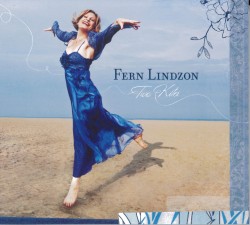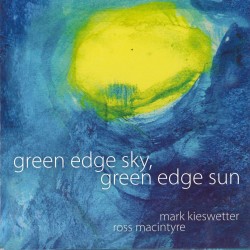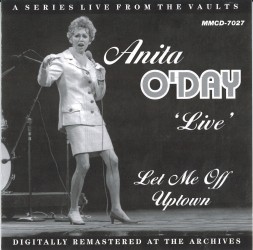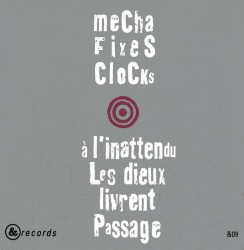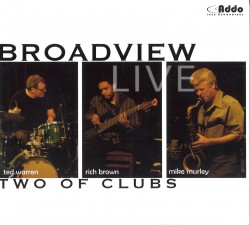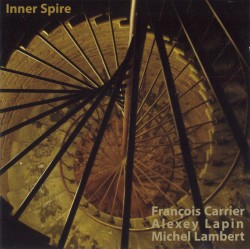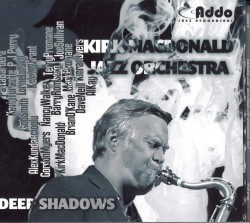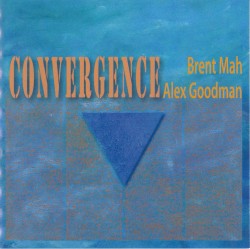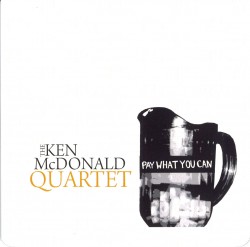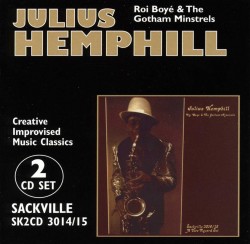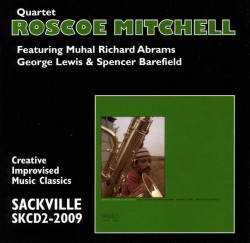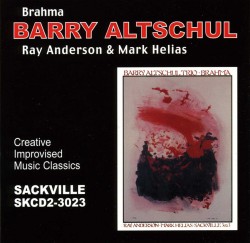SOMETHING IN THE AIR: Guelph Jazz Festival 2011
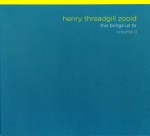 A highlight of the international calendar, the Guelph Jazz Festival (GJF), September 7 to 11, has maintained its appeal to both the adventurous and the curious over 18 years. It has done so mixing educational symposia with populist outdoor concerts, featuring performers ranging from established masters to experimenters from all over the world. For example, American alto saxophonist/flautist Henry Threadgill appears at the River Run Centre on September 10 with his Zooid quintet. A frequent GJF visitor bassist William Parker is featured in at least four ensembles; twice with Toronto vocalist Christine Duncan’s Element Choir Project on September 9 at St. George’s Anglican Church and September 10 at the outdoor Jazz Tent; on September 11 as part of an all-star quartet in Co-operators Hall; and in the same spot on September 8, with pianist Paul Plimley and drummer Gerry Hemingway. Sharing the bill is Tilting, a quartet led by Montreal bassist Nicolas Caloia. Meanwhile Danish saxophonist Lotte Anker is part of an afternoon performance September 10 at Co-operators Hall with two Americans, pianist Craig Taborn and drummer Gerald Cleaver.
A highlight of the international calendar, the Guelph Jazz Festival (GJF), September 7 to 11, has maintained its appeal to both the adventurous and the curious over 18 years. It has done so mixing educational symposia with populist outdoor concerts, featuring performers ranging from established masters to experimenters from all over the world. For example, American alto saxophonist/flautist Henry Threadgill appears at the River Run Centre on September 10 with his Zooid quintet. A frequent GJF visitor bassist William Parker is featured in at least four ensembles; twice with Toronto vocalist Christine Duncan’s Element Choir Project on September 9 at St. George’s Anglican Church and September 10 at the outdoor Jazz Tent; on September 11 as part of an all-star quartet in Co-operators Hall; and in the same spot on September 8, with pianist Paul Plimley and drummer Gerry Hemingway. Sharing the bill is Tilting, a quartet led by Montreal bassist Nicolas Caloia. Meanwhile Danish saxophonist Lotte Anker is part of an afternoon performance September 10 at Co-operators Hall with two Americans, pianist Craig Taborn and drummer Gerald Cleaver.
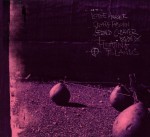 Supplely slinky, bouncingly rhythmic and unmistakable original, Zooid’s This Brings Us To Volume II (Pi Recordings PI 36 www.pirecordings.com) clearly delineates Threadgill’s compositional smarts expressed by the band. Many of the tracks depend on the contrasts engendered by mixing Liberty Ellman’s nylon-string guitar licks with the snorts from Jose Davila’s gutbucket trombone or surging tuba plus cross-sticking and rolls from drummer Elliot Humberto Kavee. The most characteristic track is Polymorph, with a sardonic melody that suggests Kurt Weill’s Berlin period. Here Threadgill’s astringent saxophone timbres are first framed by snapping frails from Ellman and later arrive at contrasting double counterpoint with the thick pop of Stomu Takeishi’s bass guitar.
Supplely slinky, bouncingly rhythmic and unmistakable original, Zooid’s This Brings Us To Volume II (Pi Recordings PI 36 www.pirecordings.com) clearly delineates Threadgill’s compositional smarts expressed by the band. Many of the tracks depend on the contrasts engendered by mixing Liberty Ellman’s nylon-string guitar licks with the snorts from Jose Davila’s gutbucket trombone or surging tuba plus cross-sticking and rolls from drummer Elliot Humberto Kavee. The most characteristic track is Polymorph, with a sardonic melody that suggests Kurt Weill’s Berlin period. Here Threadgill’s astringent saxophone timbres are first framed by snapping frails from Ellman and later arrive at contrasting double counterpoint with the thick pop of Stomu Takeishi’s bass guitar.
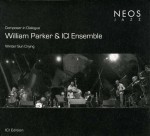 Floating Islands (ILK 162 CD www.ilkmusic.com) demonstrates the cohesive skills of the Anker/Taborn/Cleaver group. Recorded at the Copenhagen Jazz Festival, the selections demonstrate the trio’s extrasensory perception. With Anker rotating among soprano, alto and tenor saxophones, the band divides according to the improvisation; sections are devoted to saxophone-piano, saxophone-drum or piano-drum interaction. Hard reed buzzes bring out cascading choruses from Taborn for instance, while the pianist’s unconventional key clicks are met by the saxophonist’s arching split tones and tongue flutters plus swirling cymbals and snare backbeats. Sometimes the narrative becomes a mass of chiaroscuro patterns from all, with the palpable tension finally breached by Anker’s chirping tones and Taborn’s glissandi. Backwards River is an extended example of this, as galloping runs from Taborn arrive after an exposition of gritty reed tones. Before the climax, involving Cleaver knitting rat-tat-tats and tom-tom rolls into a forceful solo, the sax and piano sounds surge from gentle swing to jagged altissimo intersections rife with polyphonic smears.
Floating Islands (ILK 162 CD www.ilkmusic.com) demonstrates the cohesive skills of the Anker/Taborn/Cleaver group. Recorded at the Copenhagen Jazz Festival, the selections demonstrate the trio’s extrasensory perception. With Anker rotating among soprano, alto and tenor saxophones, the band divides according to the improvisation; sections are devoted to saxophone-piano, saxophone-drum or piano-drum interaction. Hard reed buzzes bring out cascading choruses from Taborn for instance, while the pianist’s unconventional key clicks are met by the saxophonist’s arching split tones and tongue flutters plus swirling cymbals and snare backbeats. Sometimes the narrative becomes a mass of chiaroscuro patterns from all, with the palpable tension finally breached by Anker’s chirping tones and Taborn’s glissandi. Backwards River is an extended example of this, as galloping runs from Taborn arrive after an exposition of gritty reed tones. Before the climax, involving Cleaver knitting rat-tat-tats and tom-tom rolls into a forceful solo, the sax and piano sounds surge from gentle swing to jagged altissimo intersections rife with polyphonic smears.
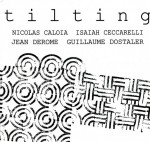 Combination spark plug and spiritual guide William Parker’s gigs at GJF 2011 are with a vocal chorus and two instrumental groupings. Winter Sun Crying recorded with Munich’s nine-piece ICI Ensemble (Neos Jazz Neos 41008 www.neos-music.com) demonstrates the skills he brings to groups of any size or instrumentation. The CD captures a 15-part suite which waxes and wanes between legato and atonal contributions. Parker’s contributions on piccolo trumpet, double reeds, shakuhachi and bass are integrated within the composition. As band members move throughout from aleatoric solos to tutti and contrapuntal passages, he adds walking to keyboardist Martin Wolfrum’s precise chording, while under both, Sunk Pöschl’s drums clatter and pop; or lets his pinched reed contrast with upturned harmonies from ICI’s three woodwinds and trombone. The ensemble never nestles in any style or genre. Roger Jannotta’s faux-baroque piccolo decorations are as germane to the performance as Markus Heinze’s guttural baritone sax snorts, while oscillated processes from Gunnar Geisse’s laptop or trombonist Christofer Varner’s sampler are responsible for the composition’s outer-space-like undertone. Meanwhile the downward shifting of Johanna Varner’s spiccato cello lines join with Wolfrum’s dynamic chording to propel the horns away from dissonance towards linearism. The finale, Let’s Change the World, not only refers back to the head, but weaves gradually diminishing string scrubs, piano key pummels and alternately breathy or splintering reed tones into an echoing statement.
Combination spark plug and spiritual guide William Parker’s gigs at GJF 2011 are with a vocal chorus and two instrumental groupings. Winter Sun Crying recorded with Munich’s nine-piece ICI Ensemble (Neos Jazz Neos 41008 www.neos-music.com) demonstrates the skills he brings to groups of any size or instrumentation. The CD captures a 15-part suite which waxes and wanes between legato and atonal contributions. Parker’s contributions on piccolo trumpet, double reeds, shakuhachi and bass are integrated within the composition. As band members move throughout from aleatoric solos to tutti and contrapuntal passages, he adds walking to keyboardist Martin Wolfrum’s precise chording, while under both, Sunk Pöschl’s drums clatter and pop; or lets his pinched reed contrast with upturned harmonies from ICI’s three woodwinds and trombone. The ensemble never nestles in any style or genre. Roger Jannotta’s faux-baroque piccolo decorations are as germane to the performance as Markus Heinze’s guttural baritone sax snorts, while oscillated processes from Gunnar Geisse’s laptop or trombonist Christofer Varner’s sampler are responsible for the composition’s outer-space-like undertone. Meanwhile the downward shifting of Johanna Varner’s spiccato cello lines join with Wolfrum’s dynamic chording to propel the horns away from dissonance towards linearism. The finale, Let’s Change the World, not only refers back to the head, but weaves gradually diminishing string scrubs, piano key pummels and alternately breathy or splintering reed tones into an echoing statement.
Another bassist/composer is Nicolas Caloia, whose Quartet CD Tilting (www.nicolascaloia.net), is a microcosm of Montreal’s scene. Completed by saxophone/flutist Jean Derome, pianist Guillaume Dostaler and percussionist Isaiah Ceccarelli, the disc highlights the bassist’s approach. While Caloia’s connective ostinato is felt throughout, this high-energy showcase gives everyone space. Impressive on each of his horns, Derome’s bass flute adds appropriately breathy tones, evolving contrapuntally with Dostaler’s comping on Stare. Meanwhile the husky textures Derome propels from baritone saxophone make Locked a stop-time swinger, especially when Ceccarelli’s solo folds flams, shuffles and ratamacues together. Derome’s singsong alto phrasing is all over the other two pieces, both of which feature brief but attentive solos from Caloia, whose string slaps and thumps concentrate the action. The pianist’s languid note cascades are showcased spectacularly on Safety where he interrupts Derome’s forays into false registers with an interlude of harmonized chording and rubato key fanning.
As this group of sound explorers join many others of similar quality during the annual GJF, it’s not surprising that this little festival has reached satisfying maturity without the compromises that impinge on many larger celebrations.


